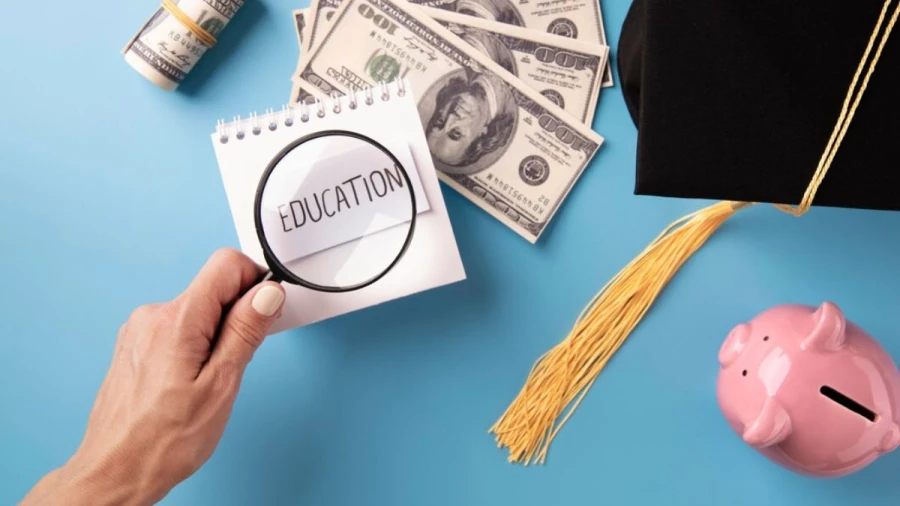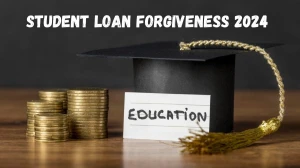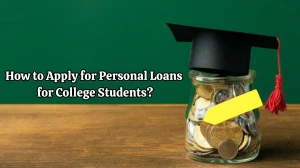
When Does Interest Start on Student Loans? How to Plan for Student Loan Repayment?
Interest on student loans begins accruing when borrowers miss payments, although there's a temporary on-ramp until September 30, 2024, preventing defaults.
Published Aug 16, 2023 | Updated Jan 13, 2024 | 📖 4 min read
When Does Interest Start on Student Loans?
The interest on student loans typically starts accruing from the moment the loan is disbursed or issued. However, there is a specific provision known as the "on-ramp" period, which runs from October 1, 2023, to September 30, 2024. During this period, borrowers who miss payments won't default, but interest will still accumulate, adding to the overall amount owed.
President Joe Biden emphasized the importance of continuing monthly payments if possible during this on-ramp, as it temporarily alleviates the risk of default or credit damage for borrowers who may face challenges in meeting their obligations. It's crucial for borrowers to stay informed and take necessary steps to manage their student loan payments within this timeframe.
How to Plan for Student Loan Repayment?
Planning for student loan repayment involves several important steps to ensure a smooth transition. Begin by locating your current student loan servicer, as it might have changed during the forbearance period. Log into StudentAid.gov to find the updated information.
Locate Your Student Loan Servicer
As repayment for student loans begins, it's crucial to identify your current loan servicer, especially if it has changed during the forbearance period. To do this, log into StudentAid.gov, where you can find information about your loan servicer. This step is essential for understanding the entity handling your loan and ensuring effective communication throughout the repayment process.
Contact Your Servicer
After identifying your loan servicer, the next step is to establish direct contact. Whether through their website or a phone call, reach out to your servicer to update your contact information. It's vital to have accurate details to receive important notifications and information about your loan.
During this interaction, inquire about the estimated amount you might owe when payments resume, understand potential monthly bills, and explore available payment plans tailored to your financial situation.
Consider An Income-Driven Repayment Plan
For borrowers looking to manage their student loan payments effectively, exploring income-driven repayment (IDR) plans is a prudent move. Contact your servicer to sign up for an IDR plan or apply online for these programs. IDR plans adjust your monthly payments based on a percentage of your discretionary income.
This adjustment ensures that your repayment obligations align with your financial capacity. By applying early, you increase the likelihood of a smoother transition into repayment, and some borrowers may even qualify for monthly payments as low as $0, offering financial flexibility.
Will Student Loans Get Cancelled?
As of now, broad student loan cancellation is currently on hold. The Supreme Court made the decision to block President Joe Biden's student debt cancellation plan in June, asserting that the administration lacked the necessary authorization under the HEROES Act to forgive up to $20,000 in student debt per borrower.
While Biden is exploring alternative legal routes for student debt cancellation, this process is anticipated to take a year or longer to implement, and success is viewed as a challenging prospect by experts. In the meantime, payments are still due, and it is advisable for borrowers to continue making them.
Additionally, for those who have been consistently repaying federal student loans for at least 20 or 25 years, there exists a potential avenue for loan forgiveness through a one-time program known as the IDR account adjustment. This forgiveness initiative is automatic for most long-term student loan borrowers, providing a distinct pathway for qualifying individuals to have the remaining balance of their loans forgiven.
How To Calculate Student Loan Interest?
Understanding how to calculate student loan interest is crucial for managing your finances. By following simple steps like finding the daily interest rate and determining the accrual charge, you can estimate the monthly interest on your student loan. This knowledge empowers you to plan your budget effectively as you navigate the repayment process.
Let's consider another example:
Annual Interest Rate: 6%
Principal Balance: $15,000
Billing Cycle: 28 days
Now, let's calculate the interest for the first month:
Daily Interest Rate: 0.000164 (6% / 365)
Daily Interest Accrual: $15,000 x 0.000164 = $2.46
Monthly Interest: $2.46 x 28 = $68.88
In this scenario, you would pay approximately $68.88 in interest for the first month. As you continue making payments and reducing the principal balance, the interest amount for each month would gradually decrease
When Does Interest Start on Student Loans - FAQs
1. When does interest start on student loans?
Interest begins accruing immediately after disbursement for unsubsidized and most private loans, while subsidized loans delay interest until after a grace period.
2. How often does student loan interest accumulate?
Student loan interest typically accumulates daily, but the frequency can vary depending on the lender's terms.
3. When will student loan payments resume after the temporary pause?
Student loan payments are set to resume on October 1, 2023, following the temporary suspension.
4. How are federal student loan interest rates determined?
Congress establishes federal student loan interest rates each spring based on the highest yield from the last 10-year Treasury note auction in May.
5. What's the main difference between subsidized and unsubsidized loans?
Subsidized loans don't accrue interest while the borrower is in school, during grace periods, or deferment, while unsubsidized loans start accruing interest immediately.




